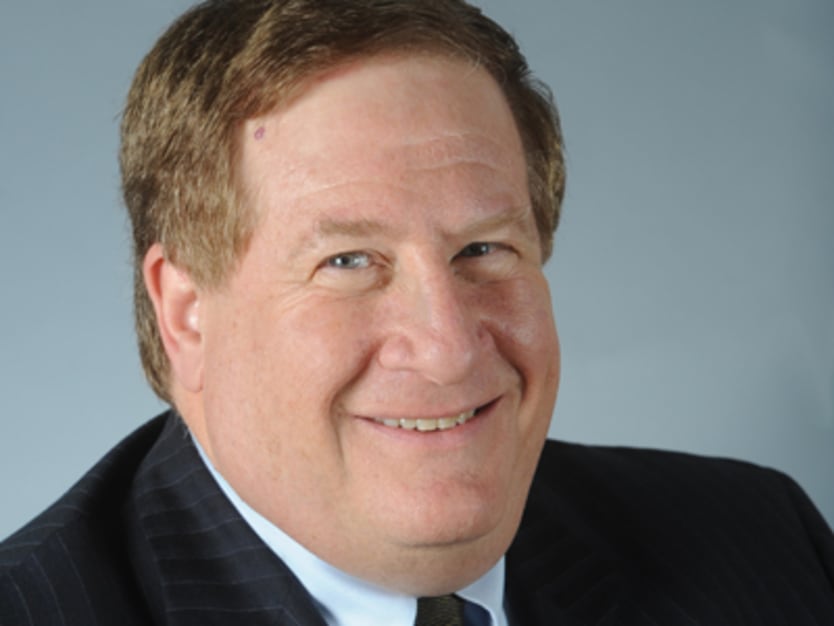
The results of the U.S. elections have little impact on foreign aid mainly because President Barack Obama, who has always been a strong supporter of broad foreign assistance, was re-elected.
That’s according to Alan Chvotkin, executive vice president and counsel at the Professional Services Council. Chvotkin told Devex a day after the elections that while procurement reforms started by U.S. Agency for International Development Administrator Rajiv Shah are expected to continue, a comprehensive revamp of the Foreign Assistance Act that Democrat Rep. Howard Berman of California has been pushing for is not likely to happen.
Chvotkin also shared his thoughts on possible leadership changes within the U.S. Congress, State Department and USAID, and how these might affect the direction of U.S. development aid.
How will leadership changes in the U.S. Congress affect foreign aid?
[Democrat Sen. Patrick Leahy of Vermont] remains as chair of the foreign operations appropriations subcommittee, and [there is] every indication that the Senate would continue to be a strong supporter of the president’s initiatives and a robust funding of the 150 [international affairs] accounts much as they have in the past.
When you go to the House side, and while there’s no change in the House foreign operations appropriations subcommittee — [Republican Rep. Kay Granger of Texas and Democrat Rep. Nita Lowey of New York remain] there — the pressure on spending reductions I think will be intensified in the House because of the overall numbers and the makeup of the House Republican caucus will drive for greater spending reductions in the foreign assistance accounts and others. Ultimately, I don’t think they’ll be successful but there’ll be extensive negotiations that will take place.
We’ll clearly see a change at the top of the House Foreign Affairs Committee, both the chairman — [Republican Rep. Ileana Ros-Lehtinen] from Florida will not be serving as chair in the next Congress and Howard Berman, the ranking Democrat, lost for re-election, so there’ll be leadership changes at the top of the House Foreign Affairs Committee. That will certainly have some impact on the oversight of the State Department and foreign policy issues. But ultimately, there has not been a foreign aid authorization bill for years and I don’t know the prospects improve at all in the 113th Congress for significant reform from the foreign assistance arena coming out of the House of Representatives.
A number of members have expressed interest [in heading the House Foreign Affairs Committee]. And addressing some of those issues, the pathway for who that senior member will be is a little bit more complicated. I think on the ranking Democrat side, Brad Sherman, also from California, is a senior member of the committee; he was the one who defeated Howard Berman. I know he’s expressed interest. I think he would continue many of the same Democratic priorities as Howard Berman did, although he has a different reputation and style than Howard Berman.
But from a policy standpoint, I would not see significant differences on the Democratic side. … Miss Ros-Lehtinen will continue to be a member of the committee even though she won’t be chairman. The chairman sets the agenda of the committee … [and] can hold whatever hearing he or she wants. That’ll clearly have a lot of more impact on the agenda. But ultimately, any legislation has to clear not only the committee but also the full House of Representatives and the Senate. The challenges remain the same.
No deal on reforming the Foreign Assistance Act?
[A] comprehensive [Foreign Assistance Act] reform of the type that Mr. Berman was developing over the last couple of years, I think, [is] unlikely. I don’t see a demand for that reform coming out of the White House or the State Department … It’s nice to have but it’s not worth paying any political capital to get. They don’t need it, they’d like to have it if it would make sense. I’m sure that the international development community would appreciate a streamlined foreign assistance legal structure, but we haven’t had one in 50 years and we’ll probably get by without it for another year or two.
What about procurement reform?
I would expect procurement reform to continue to be a priority of Raj Shah and USAID. We’ll have considerably more experience under some of the initial pilot programs that they’ve been doing and I think there’s going to be greater oversight and attention to the status and success of those. Ultimately, I think we’re closer to recognizing the critical role that for-profit companies play [and] the role of international development companies in supporting the U.S. government’s mission, the USAID mission. I’m hoping that in the next couple of months and early out in the next calendar year, we’ll see greater evidence of that partnership coming to fruition. So we’ll continue to press for appropriate procurement reform. … We’re obviously interested in making sure our member companies have a fair opportunity to participate in [competing] for work.
We’ve had a number of very fruitful discussions with the senior leadership at USAID. We’ve done a number of discussions on things that you guys are working on — on public-private partnerships, on youth policy, on water, on some of the sector policies — and we’ll continue those as well, and I would expect many of those to actually be translated into specific initiatives and business opportunities for some.
Does the international affairs budget remain in danger?
Well, sequestration will continue to be a big issue for [USAID] and for international development accounts in [their] current form. My personal view is that if we’re likely to see sequestration go into effect in January, there may be some agreement to delay the effective date of the sequestration … across the board. But I think the spending reductions will come — that’s part of the austerity, whether they come through a sequestration … or some other set of budget reductions under discretionary spending.
USAID needs to continue to rebuild its workforce. And we will continue to be strong supporters of fully funding the [overseas expense] accounts. I just don’t have much expectation that the agency will be able to grow its workforce when some of the agencies of the federal government are being asked to reduce their work.
[The international affairs budget will] be affected in some way … But at its core, foreign assistance will remain a key portion of the president’s agenda and budget.
I’ve looked at that carefully for areas of reductions. … I think the executive branch — the president, the secretary of state’s commitment will still broadly drive that agenda. … Overall, we won’t see much change in structures, but I would imagine the amount of funding for each of the accounts must be a little lower. I would not expect whole areas of the budget taken to zero. At the end of the discussion, everybody will lose a little bit of these programs that are going to expire and won’t be continued. There’ll be other programs that will have to wrap up. But I think the president’s key initiatives, Feed the Future, PEPFAR and others, will continue to be high priorities for the next administration and will have broad support in Congress.
Who is likely to replace Hillary Clinton and Rajiv Shah, should the rumors about their imminent departure be true?
I hear the same rumors. But even some of the senior leaders at USAID were all saying, “Let’s wait and see if the election forces a decision,” or it gives both the president and the individual the flexibility to choose their own timing. At least we now know there won’t be a mass resignation based on the transition to a new president. I think President Obama has strong support, strongly supports Secretary Clinton as well as Raj and they could probably stay for [a] considerable period of time if they chose to do so on their own. But I wouldn’t expect as this has happened in most administrations, that somewhere during the middle of calendar year 2013, the administration will be looking at transitions.
The secretary has said she wants to leave sooner rather than later. But you want to make sure you have a very strong candidate that can be confirmed by the Senate before you let somebody like that leave the Cabinet. You’re not going to have a vacancy in the secretary of state position. The timing of her departure if it comes at all will be one that’s negotiated with the White House, so it’s only when the president can stand himself in the East Room of the White House with Secretary Clinton on the one side and her replacement on the other.
[Hillary Clinton] has a strong and very positive reputation in the international development community worldwide, not only in the U.S. And I think strong support from members of Congress for the work that she has been doing at the State Department — launching [the Quadrennial Diplomacy and Development Review], being at the forefront of some of the USAID reform — if anything, she’s strengthened the role of the State Department and the role of the secretary of state as the spokesperson for U.S. foreign policy. So I think that’s been a positive effect of hers and part of that legacy she has.
When she leaves, the next secretary of state is going to have a different approach. The times are going to be different. The president [is] comfortable with the working relationship that he’s had with this secretary and he’ll have to establish or build on the relationship with the new secretary of state. The world is different, the times are different. We’ll have to see how that spins out in the future.
Read more:
Read more on U.S. aid reform online, and subscribe to The Development Newswire to receive top international development headlines from the world’s leading donors, news sources and opinion leaders — emailed to you FREE every business day.








